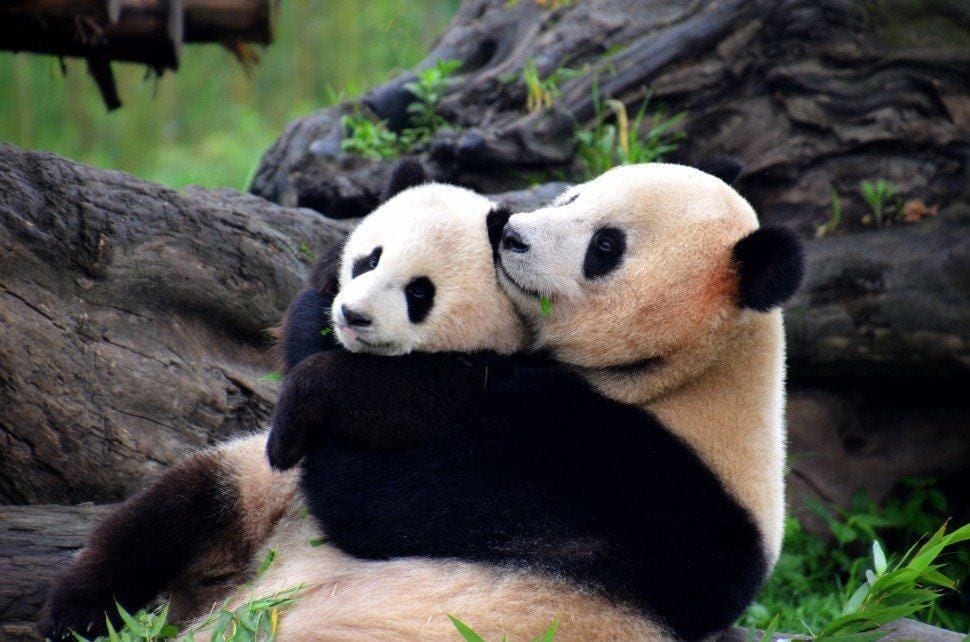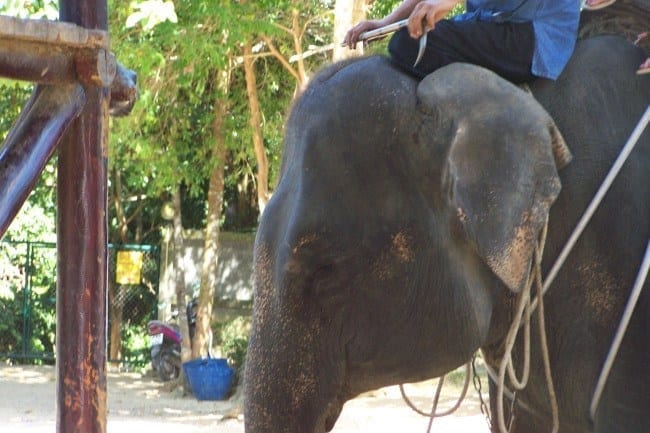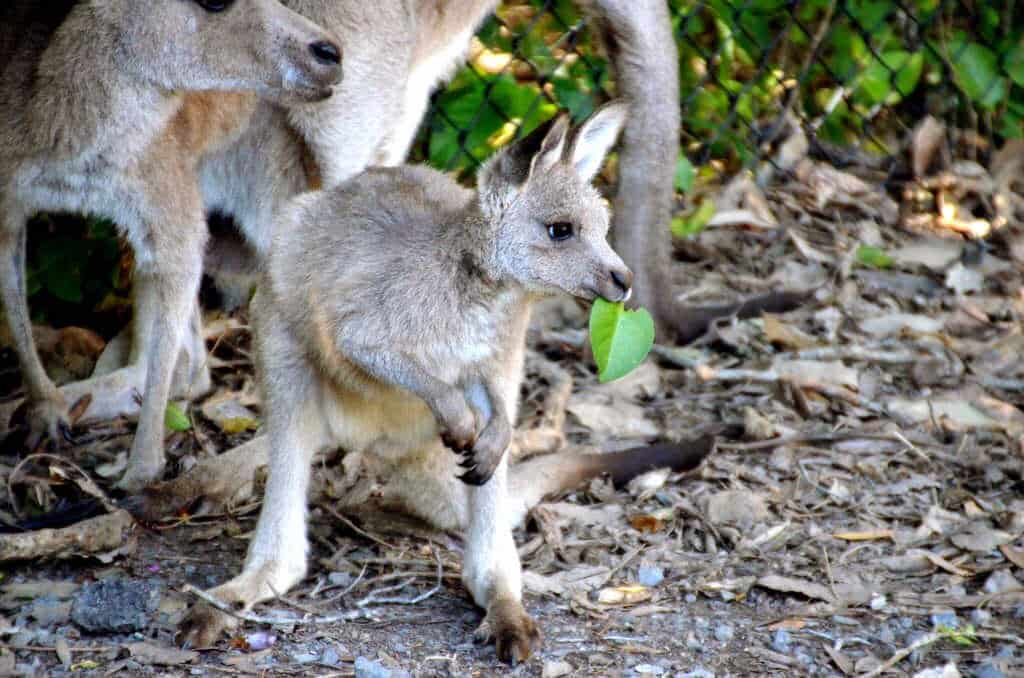
Unlike everyone else on the internet, I am not going to opine at length about the tragic events at the Cincinnati Zoo recently in which a small child fell into a gorilla enclosure and the gorilla onto which said baby fell, Harambe, was shot and killed. No, it’s not my place to talk about that because 1) I wasn’t there; 2) I am not a biologist or otherwise expert in zooetry and 3) Not my kid. But what this entire event has done is shine a bright light onto zoos around the country and world and we as a society are, I think, having a conversation about it. But as everyone has already realized, it’s not an easy conversation to have and, at least here in the United States, there’s no single one solution that we can all agree on, but I think we’re getting there. I think I can see what the final outcome of this may be, but I first want to take a look at why talking about zoos is so damn hard in the first place.

My personal love of animals
I love animals, all wildlife really, and always have. Ultimately, I blame Disney for the anthropomorphization of animals through its classic films, but at the heart of it the fault is mine. I just enjoy being around them, observing them and getting as close to them as I can. I’m certainly not alone, and visiting animals in some sort of captivity has been a particular pastime for centuries. We as humans have a close bond to wildlife, it’s a bond we’ve always enjoyed but today it’s become something a little different, more of a fierce admiration of them that has slowly turned into love. I’ve pursued this obsession with wildlife around the world, engaging a few times in practices I later learned to be irresponsible and potentially harmful to the animals. That’s the hardest thing about wildlife and travel, how to best protect and preserve the animals without harming them and still giving access to the humans who so very desperately want to see them. It’s not easy.
I travel a lot and even I have been bamboozled by irresponsible travel practices, so I understand how difficult it can be to know when wildlife is being protected and when it’s not. Several years ago I was in Thailand and excited to join an elephant encounter. That ‘encounter’ involved riding around on top of these beautiful animals in the middle of the jungle. The thing is, as soon as I arrived I knew it was wrong and after sitting on top of that poor elephant I instantly sensed his sadness. Just looking into his eyes I saw a misery and pain that I never want to see again. I left the site immediately, seething from anger and frustration. I was angry at myself for not knowing better and frustrated at my own inability to affect change on any level. Even today I tear up thinking about this poor elephant and the elephant rides; it touched me that deeply.
Since starting my website I have sought a way to promote responsible wildlife tourism (my first post was on the subject), and I have yet to find a way that will actually change the way people travel. I’ve even unwittingly been a party to other irresponsible activities, nothing as egregious as another elephant ride, but ultimately not beneficial to the animals. My own education has been an evolution, and I think that’s what many people around the world are undergoing at the moment. It’s been ongoing for quite a while, it didn’t start with the Cincinnati Zoo, but that incident has brought it back to life, shone a bright light on it and shoved it back into public discourse. Good, we need that, just as we needed that with circuses and SeaWorld, so too do we need this with zoos, but zoos are infinitely more complicated than whale shows or trained elephants.

Zoos, aquariums and circuses
I don’t like aquariums (Aquaria? No, probably not.), a fact I explained in this post from a few years ago. For the most part, the concept of them doesn’t necessarily bother me. Fish in a tank – super. It’s when these institutions start acquiring larger animals and incorporating them into their business; when they start trying to become mini versions of SeaWorld, that’s when I get upset. But I don’t think aquariums are going anywhere, at least not yet, not like SeaWorld.
In 2013, the documentary “Blackfish” was released, a film that ended up changing how we all think about animal experiences and changing an entire industry in the process. The movie told of the incredibly inhumane conditions in which the orcas are kept at SeaWorld and how they are essentially “driven mad” by their enclosures. While the movie definitely wasn’t a box office smash, it did have significant effects on the way we as a society interact with animals.
Attendance dropped, corporate sponsors severed ties and SeaWorld entered into a free-fall. A very simple, low-budget documentary appeared to be changing the core operation of a massive company with tentacles spread around the globe. Then, SeaWorld appeared to capitulate to the public outcry, announcing that they would stop breeding orcas in captivity and their famous shows would also end within two years. That is a very big shift, all thanks to one short film.
Circuses though have long been the object of intense scrutiny due to their animal rights violations, but little changed their business practices. What did change was how we as a people look at animals, examine closely how we use them in our daily lives and learn as much as possible about what that means for them physically and mentally. For more than a century, the beautiful elephant has been the symbol of The Ringling Bros. and Barnum & Bailey Circus, America’s most beloved circus. But in recent years, local and state governments have passed a variety of anti-cruelty laws to protect all animals in captivity, including elephants. Fighting a losing battle, the circus giant recently phased out all of their elephants from performances, accelerating a timeline they originally said would take a few years. They have been retired to the company’s elephant conservation center in Florida, and it looks like the elephant has finally left the stage (at least in America) of these traveling shows, where cruelty was too often the norm.

Zoos and why they’re different
Zoos aren’t circuses or the spectacle of SeaWorld though. The modern zoo, at least in the US, is just that, modern. They are important centers of research where some amazing work is conducted helping us better understand the science and behavior of wildlife from around the world. They’re also important for rehabilitation work and breeding innovations, many times saving entire species from the brink of extinction. But they’re also cages where thousands of animals are kept confined every day of their lives in what is a very unnatural process.
I used to love zoos and I think I might still do, but I can’t be sure. Personally, I’m evolving on this issue, perhaps a poor choice of words since it implies that one point of view is better than the other, but maybe that’s the case after all. I can’t stop thinking about an interview I did in 2014 with Diana Edelman, a travel writer who now has become an authority in wildlife conservation and tourism. She made a point that anytime we experience wildlife and they’re not behaving as they would in the wild, then something is wrong. Zoos walk this thin line carefully, but ultimately I think that my overall opinion of them will shift from benign tolerance to places I more actively avoid. But this is such a difficult issue because unlike SeaWorld and circuses, zoos do very real and very meaningful work. They are staffed by biologists and other experts in their fields and over the decades the work conducted at some of the best zoos in the world has helped further our knowledge of the world around us in ways that simply could not have been accomplished in any other way. But not all zoos are world-class institutions and far too many are just holding pens for animals, there to amuse our kids, sit patiently as we take photos and otherwise live lives contrary to what they should have been. Zoos for me are sad places, not happy ones full of balloons and happy children, but depressing animal prisons and I’m not sure what we as a society should do about this.
Ultimately, I have no answers, probably no shock there. But I do have my opinions, which are always in ample supply. I think that the general public will also evolve with me and we’ll see at first many small zoos simply disappear until we are left with a few of the core institutions that today are leaders in the field. There they will continue to conduct research and breeding, helping save countless species from certain death. But then what? Even if we save threatened species, if they can’t be reintroduced into the wild then what exactly is the point? I don’t want us as a society to be breeding exotic animals for our amusement, there has to be a solution, a game plan of protecting, preserving and enhancing the lives of these animals.
While I may skip zoos from now on, there are many wonderful sanctuaries and retreats around the world doing great work and that I always enjoy visiting. In Thailand, the Save the Elephant Foundation works with rescued elephants and in Australia, the Currumbin Wildlife Sanctuary treats injured and sick wildlife while encouraging education. Ultimately, that education is the main reason why we need to continue to have a small number of reformed zoos. Our kids DO need to see and learn about these animals, not to gawk at them, but to appreciate them. If they don’t learn the importance of wildlife conservation at a young age, then they never will and the cycle of animal abuse will eventually return. No, there shouldn’t be a ban on all zoos, but we as a society do need to step back and think about what it is we want from zoos, how we want animals to be treated and how we can all work cooperatively to make this happen. It’s not easy, in fact it’s very hard, but at the end of the day it’s not only in the best interest of the animals that we do this, but ours as well.
